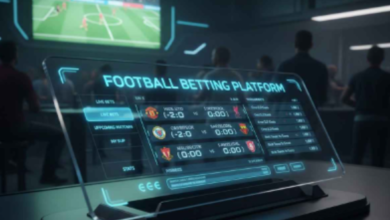Event Management: Comprehensive Services for Successful Events

Imagine hosting an event where every detail, from concept development to post-event analysis, is meticulously planned and executed. You don’t just want an event; you want an experience that leaves a lasting impact on your attendees. Comprehensive event management services cover all aspects, including venue selection, logistics planning, and vendor coordination. They ensure seamless execution and effective marketing strategies to engage your audience. Curious about how these elements come together to create a successful event? Let’s explore the intricacies of crafting memorable and impactful experiences.
Concept Development
Concept development is the critical phase where you transform a basic event idea into a detailed, actionable plan. Start by defining your event’s goals and objectives, as these will shape your strategy.
Brainstorm theming ideas that aren’t only unique but also resonate with your target audience. Whether it’s a corporate gala or a casual networking event, your theme should set the tone and create a cohesive experience.
Next, focus on audience engagement. Think about what’ll captivate and involve your guests from start to finish. Interactive elements like live polls, Q&A sessions, or hands-on workshops can make a significant impact. Consider incorporating multimedia presentations or dynamic speakers who can keep attendees engaged and entertained.
Don’t forget the finer details—these are what make your event memorable. Create a timeline that outlines each phase of your event planning process. This ensures you cover all bases, from initial brainstorming to final execution.
Keep your audience in mind at every step, asking yourself how each decision enhances their experience. By meticulously planning and creatively thinking, you’ll set the stage for a successful event that leaves a lasting impression.
Venue Selection
Choosing the right venue is crucial, as it sets the stage and atmosphere for your entire event. Start by defining the event’s purpose and size to narrow down your options. Your venue should align with your vision, whether it’s a corporate seminar or a whimsical wedding.
Next, consider budget allocation. Allocate a realistic portion of your budget to the venue, keeping in mind that it’s often one of the largest expenses. Don’t forget to ask if the venue includes essential amenities like seating, lighting, and sound systems, or if you’ll need to rent these separately. Hidden costs can quickly eat into your budget!
Accessibility considerations are equally important. Make sure the venue is easily reachable by public transport and has ample parking for guests who drive. Check for accessibility features like ramps, elevators, and restrooms for guests with disabilities. These small details can greatly enhance your attendees’ experience.
Additionally, consider the ambiance and layout. Visit the venue at the same time of day as your event to gauge lighting and atmosphere. Don’t hesitate to ask for a floor plan to better visualize seating arrangements and traffic flow.
Logistics Planning
Efficient logistics planning transforms your event from a chaotic jigsaw puzzle into a seamless, memorable experience. To achieve this, start by mapping out all transportation arrangements. Consider how your guests will arrive—coordinate shuttles, car services, or parking solutions to ensure smooth entry and exit. The key here is timing; stagger arrivals to avoid congestion and provide clear directions to everyone involved.
Next, dive into equipment rentals. From audio-visual gear to seating and tents, every piece needs to be booked well in advance. Create an inventory checklist to avoid any last-minute scrambles. Assess the venue layout to determine the optimal placement of each item, ensuring accessibility and functionality.
Don’t forget about on-site logistics. Plan for easy navigation with clear signage and strategically placed information booths. Coordinate loading and unloading zones for vendors and staff to streamline the setup and takedown processes.
Lastly, always have a contingency plan. Weather, traffic, and unforeseen hiccups can throw a wrench in your meticulous planning. Prepare backup transportation routes and extra equipment. By paying attention to these details, you’ll not only orchestrate a flawless event but also ensure peace of mind throughout the process.
Vendor Coordination
To ensure a seamless event, start by building strong relationships with your vendors, making sure everyone is on the same page and aware of their responsibilities. Effective vendor coordination begins with clear and open supplier communication. Schedule regular meetings and updates to discuss the event’s progress and any potential issues that may arise.
When it comes to contract negotiation, be meticulous. Ensure that all agreements are in writing and cover every detail, from delivery times to payment terms. This prevents misunderstandings and ensures both parties know what’s expected. Always review contracts carefully, and don’t hesitate to ask for amendments if something seems off.
Create a detailed vendor checklist that includes contact information, delivery schedules, setup requirements, and contingency plans. Share this with your team to ensure everyone knows who to contact in case of emergencies.
It’s also crucial to maintain flexibility. Vendors might face unforeseen challenges, and being adaptable will help mitigate any disruptions. By fostering a collaborative environment, you’ll encourage vendors to go the extra mile, ensuring your event runs smoothly.
Through strategic contract negotiation and efficient supplier communication, you’ll achieve successful vendor coordination, laying the foundation for a flawless event.
Marketing Strategies
Crafting an effective marketing strategy for your event requires a blend of creativity, planning, and targeted outreach to ensure maximum attendance and engagement. Start by identifying your target audience. Who are they, and what platforms do they engage with most? Knowing this will help you tailor your marketing efforts effectively.
Utilizing social media is crucial. Create compelling content that resonates with your audience. Share behind-the-scenes looks, teaser videos, and engaging graphics to build anticipation. Don’t forget to use relevant hashtags and encourage shares to expand your reach.
Email marketing is another powerful tool. Segment your email list to send personalized messages. Highlight key event details, early bird specials, and speaker spotlights to pique interest. Consistency is key; schedule a series of emails leading up to the event.
Engage your audience through interactive content. Polls, contests, and Q&A sessions can boost interaction and make your audience feel involved. Partnering with influencers or industry experts to promote your event can also amplify your message.
On-the-Day Management
When the big day arrives, seamless execution is paramount to ensure your event runs smoothly and leaves a lasting impression. On-the-day management involves meticulous planning and real-time problem-solving to keep everything on track. Your first priority should be guest coordination; greeting attendees warmly, guiding them to their seats, and ensuring they know where to go at all times.
An essential component of on-the-day management is schedule oversight. You’ll need to monitor the event timeline rigorously, making sure speakers, activities, and breaks occur precisely as planned. Keep a detailed agenda handy and communicate frequently with your team to adapt to any unexpected changes swiftly.
Creatively designing the flow of the event can enhance the overall experience. For instance, incorporate interactive elements or surprise performances that keep guests engaged and excited.
Effective communication with all stakeholders, from vendors to volunteers, ensures everyone knows their roles and responsibilities. Use technology, like event management apps, to synchronize efforts and streamline updates.
In essence, on-the-day management demands a blend of strategic oversight and creative flair. By focusing on guest coordination and schedule oversight, you can orchestrate an event that not only meets but exceeds expectations.
Post-Event Analysis
After the excitement of the event itself, your next focus should be conducting a thorough post-event analysis to evaluate its success and identify areas for improvement.
Start by gathering attendee feedback through surveys or comment cards. This insight is invaluable as it provides a direct reflection of the participant experience. Ask questions about their satisfaction with various aspects of the event, such as venue, content, and overall organization.
Next, dive into performance metrics. Analyze attendance rates, social media engagement, and any sales or lead generation data. These metrics will help you understand what worked well and what didn’t. Compare these numbers against your initial goals to measure your event’s overall effectiveness.
Create a detailed report summarizing your findings. Highlight key successes, but don’t shy away from addressing areas that need improvement. Use visual aids like charts and graphs to make the data more digestible.
Share this report with your team and stakeholders to foster a culture of continuous improvement.
Conclusion
You’ve navigated through the intricate dance of event management, from the first spark of an idea to the final applause of a successful event.
With each step—choosing the perfect venue, coordinating vendors, and crafting marketing strategies—you’ve painted a masterpiece.
Now, as the curtain falls, remember that every detail, every decision, has crafted an unforgettable experience. Your dedication to seamless execution ensures that attendees leave with memories they’ll cherish forever.
Keep creating magic!





